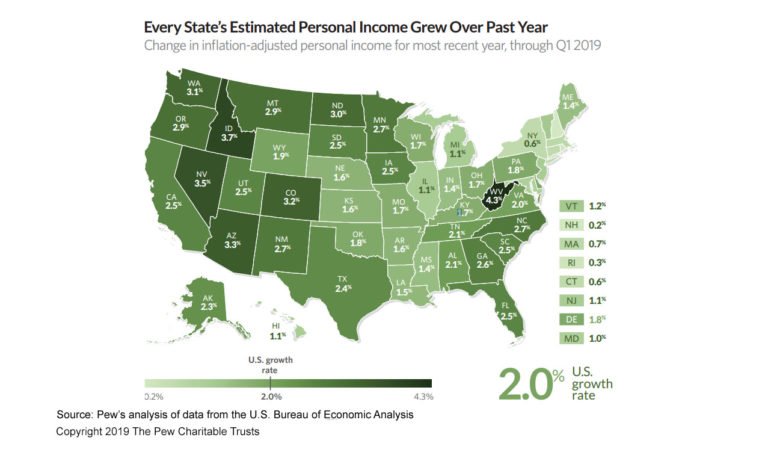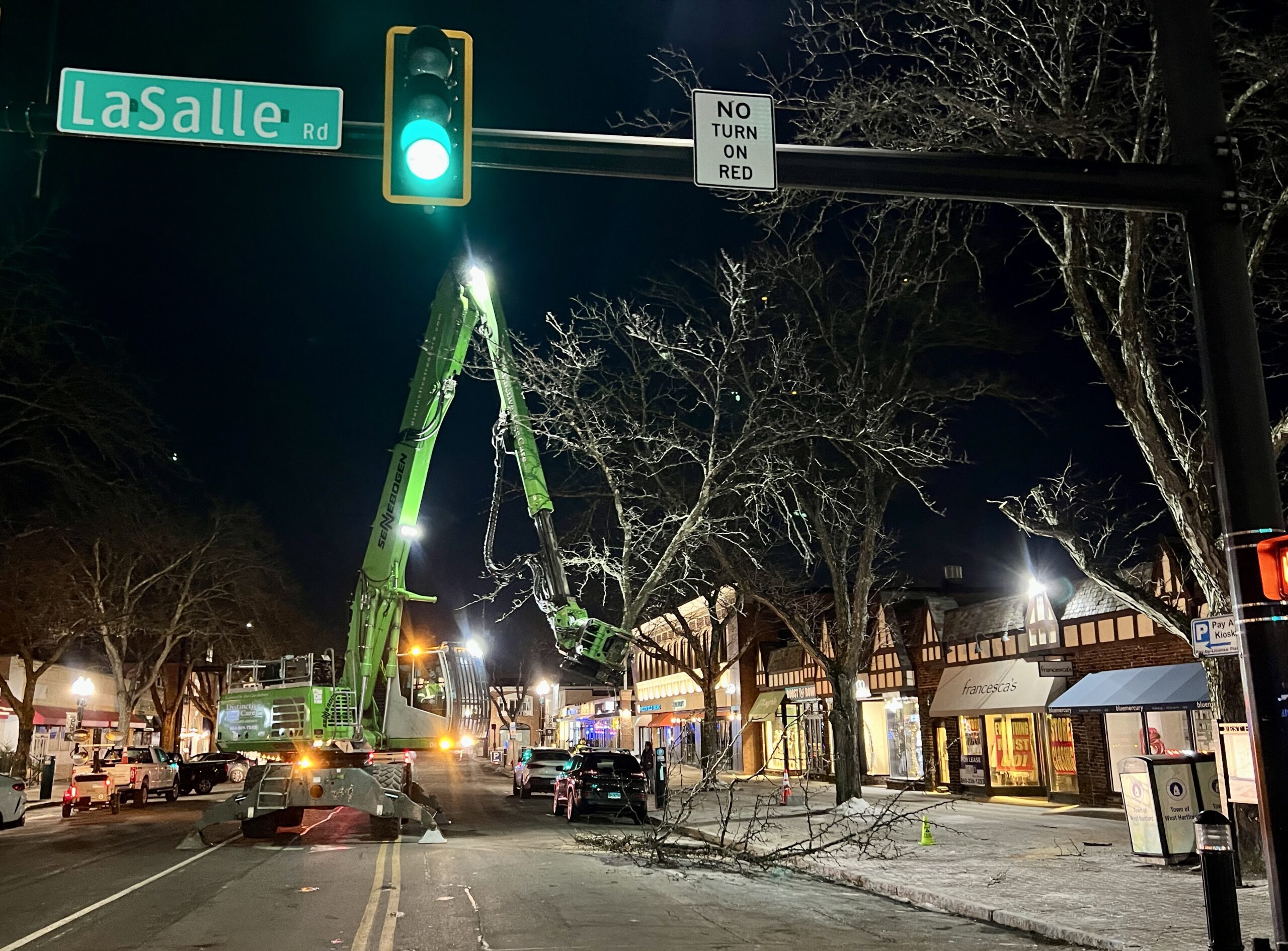New Report Shows CT Still Lags the Nation in Personal Income Growth

Audio By Carbonatix

By Keith M. Phaneuf, CTMirror.org
Personal income surged nationally this year in a way not seen since 2011 – but growth in Connecticut still lagged most of the nation, according to a new analysis from Pew Charitable Trusts.
Personal income in the U.S. rose by 2 percent in the first quarter of 2019 compared with the same three-month period in 2018. Connecticut’s growth was only about one fourth of that.
More importantly it marked the second consecutive quarter that personal income grew in all 50 states – a benchmark not reached in eight years, according to Pew analysts.
Personal income includes wages and interest earnings, income from rent and public assistance programs – but not capital gains. This is an important distinction, especially in Connecticut and other northeastern states with economies heavily reliant on investments and financial services. For example, nearly one-third of all Connecticut state income tax receipts come from quarterly filings, which are heavily influenced by capital gains and dividends.
Still, personal income is an important benchmark that shows changes in most of the earning capacity for a significant portion of the population.
Twenty-four states tied or exceeded the national average growth rate of 2 percent led by West Virginia, where personal income rose 4.3 percent between the first quarter of 2018 and the first three months of 2019.
But over the same period, growth in Connecticut was just 0.6 percent, tied with New York for 48th, only Rhode Island (0.3 percent) and New Hampshire (0.2 percent) ranked lower.
“It kind of mirrors what we’ve been saying to policymakers: Our growth still hasn’t been measuring up to the rest of the country,” said Joseph F. Brennan, president and CEO of the Connecticut Business and Industry Association.
Brennan added that while there are good things happening with Connecticut’s economy, “when you look at the macro numbers, we’re not keeping pace.”
Economist Fred Carstensen, who heads the University of Connecticut’s economic think-tank, said this state still is feeling the effects of the first few years after the last recession ended. Between 2010 and 2014 Connecticut badly lagged the nation, not only in jobs recovered, but also in wages regained.
In other words, the state lost many high-paying jobs during the recession, particularly in key areas like financial services and advanced manufacturing, and replaced them with lower paying service jobs.
“We haven’t recovered yet, in real terms, in jobs or in output,” Carstensen said. “This recovery has been extraordinarily weak.”
According to Pew analysts, Connecticut ranks dead last among states in personal income growth between the fourth quarter of 2007 – just before the last recession began – and the first quarter of this year.
While the nation has averaged 1.9 percent growth over this period, Connecticut is up just 0.8 percent.
“There is no question Connecticut has struggled to recover from the Great Recession,” said Office of Policy and Management Secretary Melissa McCaw, Gov. Ned Lamont’s budget director. “Even as our state’s private sector has recovered all of the jobs lost during that contraction, the data has shown that we have replaced the lost higher-wage jobs with lower-wage positions, which would stymie a measure such as growth in personal income across our entire state.”
McCaw added that “our work is not done. We must focus our efforts on making our state a place where businesses can grow and thrive, where we can provide a pipeline of talented employees, and where our public and private universities and community colleges produce the next generation of employees with the specialized skills our businesses need. We need to continue to invest in workforce development, whether it is providing training to someone pursuing a new career, supporting growth in Advanced Manufacturing Technology Centers, creating a fertile environment for investment in startups, and increasing access to and opportunity for education beginning with preschool.”
Don Klepper-Smith, an economist with DataCore Partners, said even as Connecticut’s recovery began to pick up steam in 2015 and later, it hasn’t been enough to overcome all of the problems during the last recession and the initial years of sluggish recovery.
“Jobs create income, spending and consumer confidence and those linkages play out over time.” said Klepper-Smith, who was Connecticut’s chief economic advisor under former Gov. M. Jodi Rell.
“Job numbers drive the income numbers,” he said, adding that Connecticut is one of just two states that still hasn’t recovered all jobs lost during the last recession.
And while Klepper-Smith and Carstensen both said Connecticut is at risk of slipping into recession over the next year, Carstensen added this state still has some positive economic momentum in one key area.
“There may be a silver lining in that we are real strong in the defense industry and they are ramping up right now,” he said, referring to job growth at Electric Boat in Groton, Pratt and Whitney in East Hartford and Sikorsky Aircraft in Stratford. “This could carry us a long way.”
Reprinted with permission of The Connecticut Mirror. The author can be reached at [email protected].
Like what you see here? Click here to subscribe to We-Ha’s newsletter so you’ll always be in the know about what’s happening in West Hartford!



